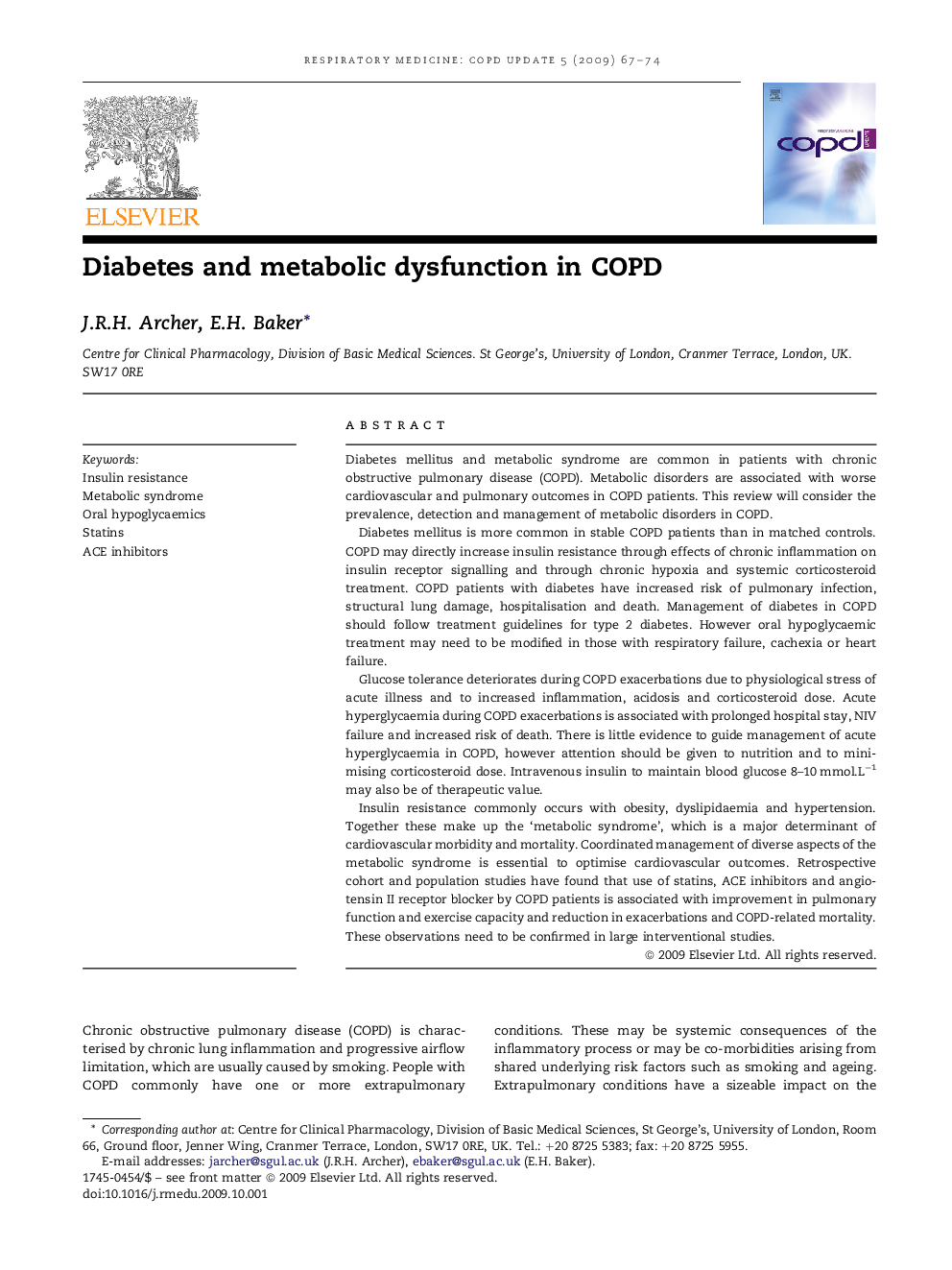| Article ID | Journal | Published Year | Pages | File Type |
|---|---|---|---|---|
| 4213231 | Respiratory Medicine: COPD Update | 2009 | 8 Pages |
Diabetes mellitus and metabolic syndrome are common in patients with chronic obstructive pulmonary disease (COPD). Metabolic disorders are associated with worse cardiovascular and pulmonary outcomes in COPD patients. This review will consider the prevalence, detection and management of metabolic disorders in COPD.Diabetes mellitus is more common in stable COPD patients than in matched controls. COPD may directly increase insulin resistance through effects of chronic inflammation on insulin receptor signalling and through chronic hypoxia and systemic corticosteroid treatment. COPD patients with diabetes have increased risk of pulmonary infection, structural lung damage, hospitalisation and death. Management of diabetes in COPD should follow treatment guidelines for type 2 diabetes. However oral hypoglycaemic treatment may need to be modified in those with respiratory failure, cachexia or heart failure.Glucose tolerance deteriorates during COPD exacerbations due to physiological stress of acute illness and to increased inflammation, acidosis and corticosteroid dose. Acute hyperglycaemia during COPD exacerbations is associated with prolonged hospital stay, NIV failure and increased risk of death. There is little evidence to guide management of acute hyperglycaemia in COPD, however attention should be given to nutrition and to minimising corticosteroid dose. Intravenous insulin to maintain blood glucose 8–10 mmol.L−1 may also be of therapeutic value.Insulin resistance commonly occurs with obesity, dyslipidaemia and hypertension. Together these make up the ‘metabolic syndrome’, which is a major determinant of cardiovascular morbidity and mortality. Coordinated management of diverse aspects of the metabolic syndrome is essential to optimise cardiovascular outcomes. Retrospective cohort and population studies have found that use of statins, ACE inhibitors and angiotensin II receptor blocker by COPD patients is associated with improvement in pulmonary function and exercise capacity and reduction in exacerbations and COPD-related mortality. These observations need to be confirmed in large interventional studies.
